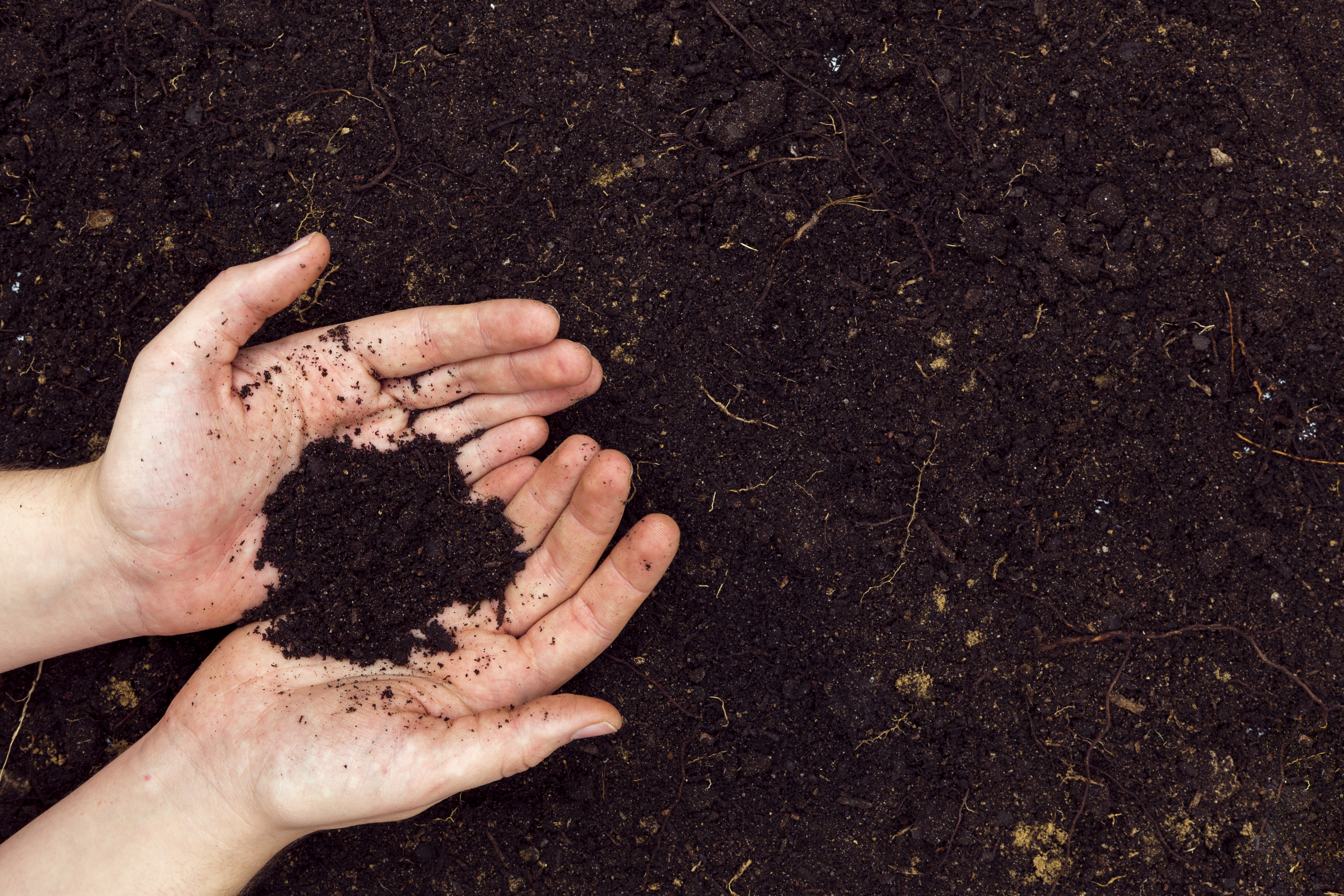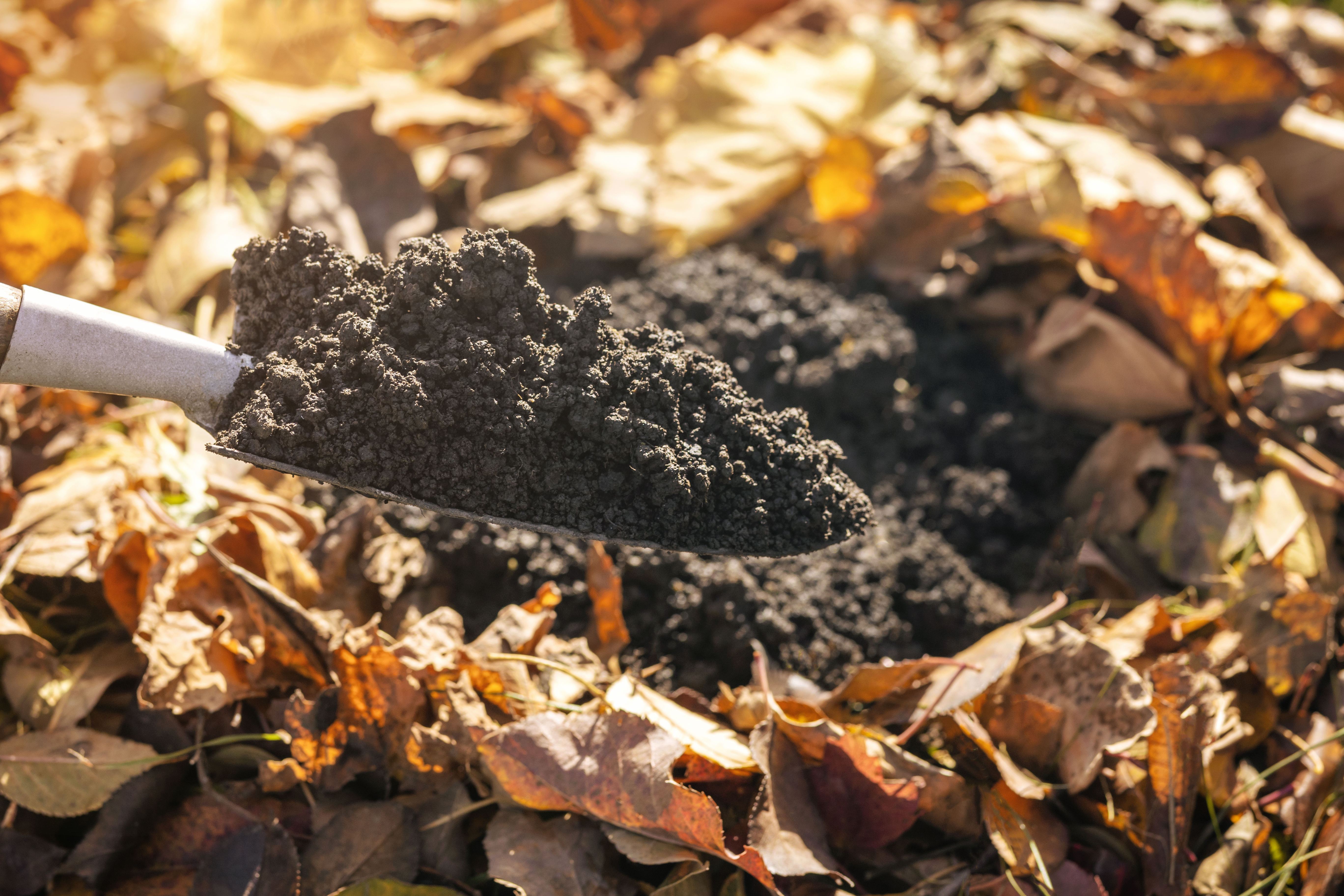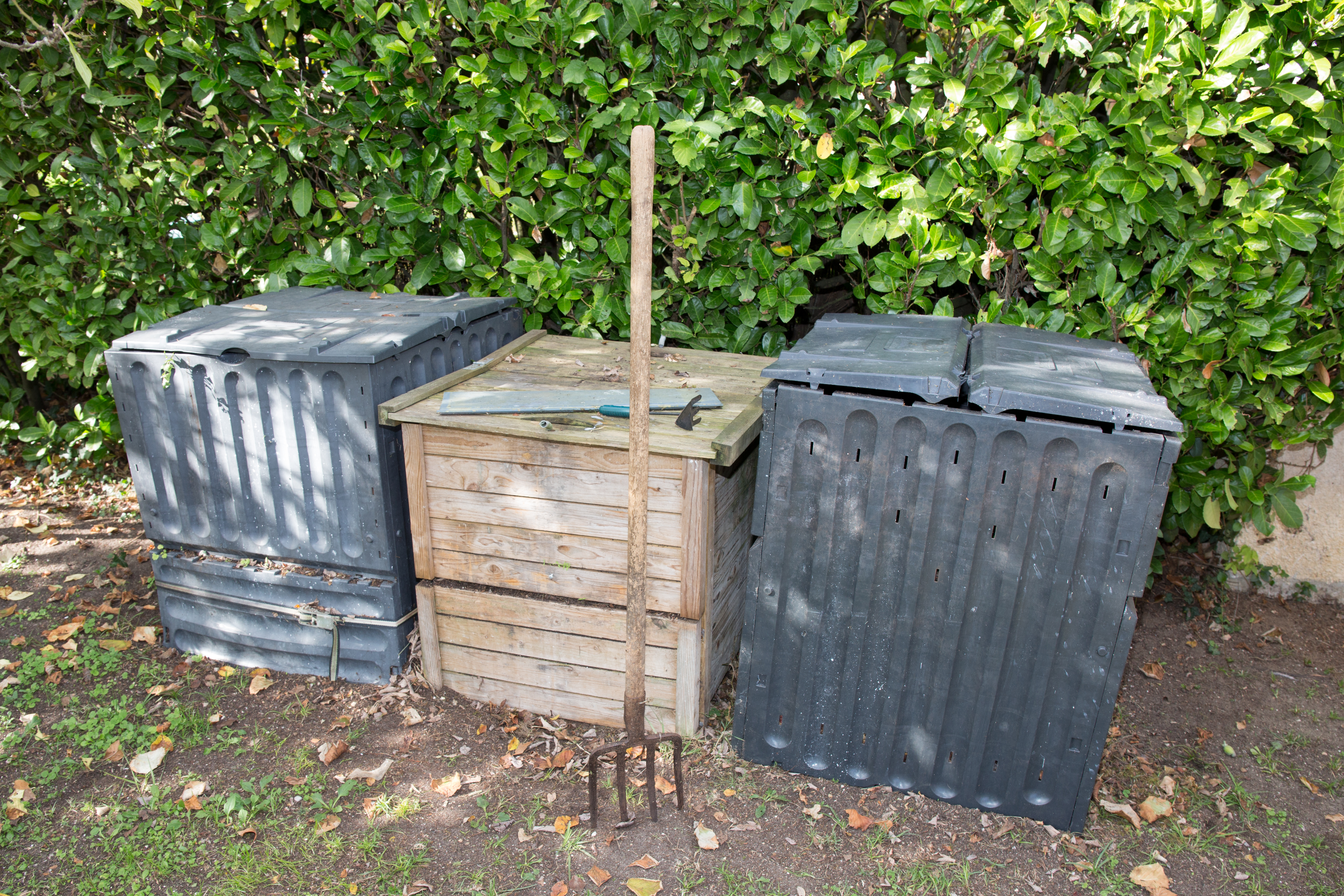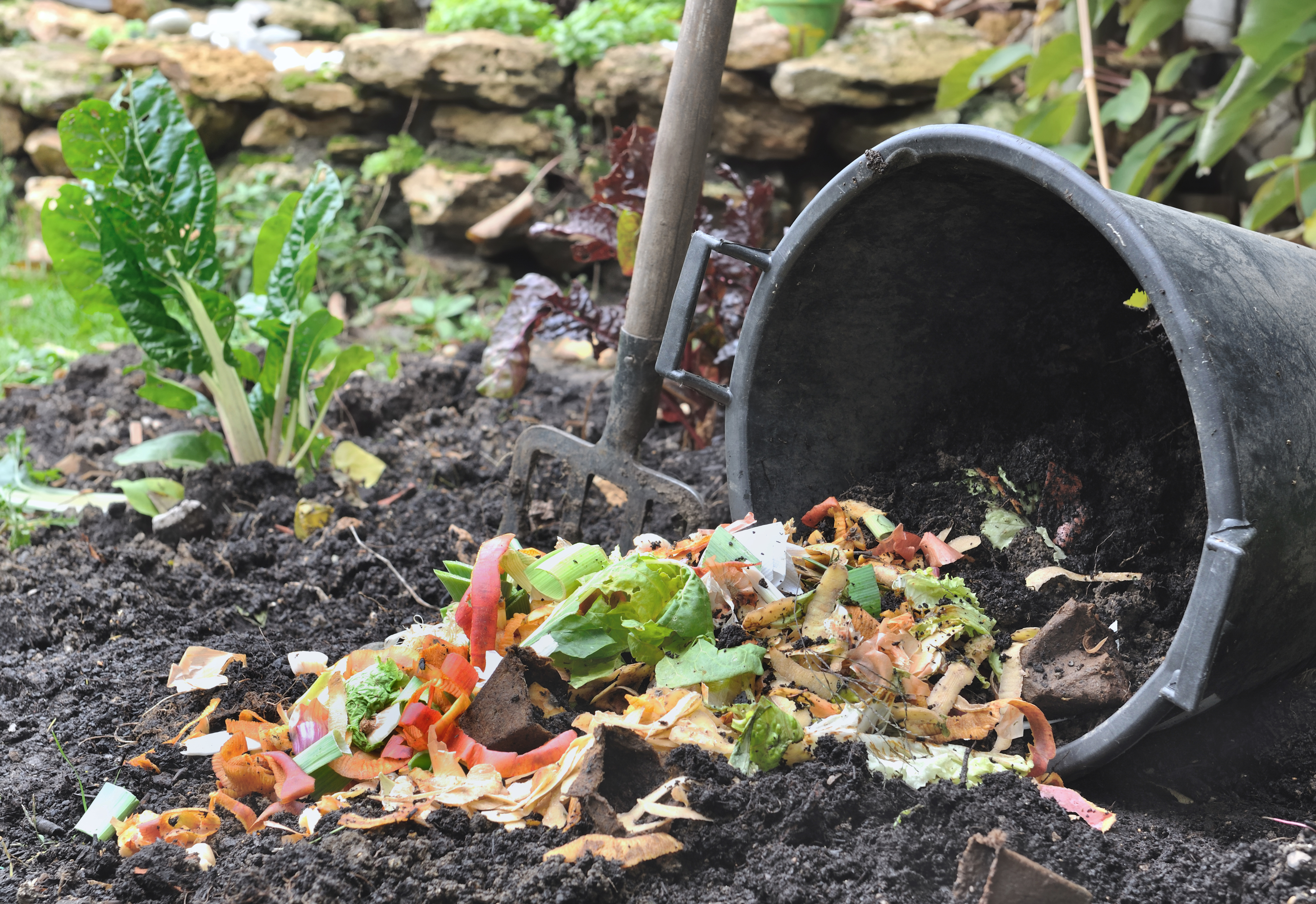Most gardeners know that it’s a good idea to add compost to the garden. Compost helps improve soil structure, feeds beneficial organisms in the soil, and provides a slow-release source of nutrients. The tricky part about ‘compost’ is it’s a catch-all term for many types of decomposed organic materials. Compost isn’t just a homemade compost pile with kitchen scraps and yard waste, there’s also manure compost, municipal compost, worm compost, and more. So how do you know which type of compost is best for your garden? The first step is to know what you want to achieve when adding compost.
Ways to use compost in the garden
There are a few key reasons to add compost to your garden:
Compost adds organic matter that improves the structure of both sandy soils and clay soils. It also provides food for beneficial organisms that improve the health of your soil.
Compost can provide a slow-release source of key nutrients that plants need. The amount of nutrients contained in the compost depends on the materials used to make it. Many types of compost contain relatively low nutrient concentrations.
Compost can also be used as a mulch which can help your soil retain moisture and, when applied in a layer several inches thick can help to suppress weeds.
Depending on which of these benefits you’re aiming for, you’ll want to choose a compost (or combination of composts) accordingly.

Types of compost
Keeping in mind the various ways we can use compost in the garden, let’s delve into some of the commonly available types of compost and their uses:
Manure-based compost (including bagged manure)
Manure-based composts often consist of decomposed cow, sheep, or horse dung along with the bedding material. While there are slight differences in nutrient concentrations and organic matter levels, manure from these animals is generally interchangeable so long as it is well decomposed. Manure-based composts provide both a good source of organic matter that can help improve soil structure as well as a dose of nutrients. They are often incorporated directly into the soil as an amendment or could be used as a mulch.
There are also composted poultry (chicken, turkey) manures available which provide a more highly concentrated dose of nutrients. These are used primarily as fertilizers rather than soil amendments.
Manure-based composts can be sold in bulk (see ‘commercial compost’ below) or in bags at your local garden center. Composted poultry manure may also be dried and sold as pellets.
Mushroom compost
Mushroom compost is a type of commercial compost that consists of growing material from mushroom farms. It is typically a combination of aged manure, straw, and gypsum. Mushroom compost is a good source of both organic matter and some nutrients. You can find mushroom compost sold as a bagged product or available in bulk from a mushroom farm. If you have access to mushroom compost it is a good soil amendment. There is mixed information about mushroom compost containing ‘high levels of salts’ that could harm plants- some sources say it’s a concern, others say it’s no different than any manure-based compost. To be cautious you could start with smaller doses or experiment in a small area of your garden.
Worm compost (vermicompost)
Vermicompost, also called worm castings, is not technically a compost but a byproduct of the digestive process of specific types of worms as they break down food waste and other organic materials. Vermicompost typically comes in smaller quantities as a bagged product and can be pricey compared to other types of compost (unless you make your own!) It may not make sense to use as a soil amendment in large quantities, but can be incorporated in smaller areas, containers, and in seed starting mixes to add a boost of organic matter, microbes, and a light dose of nutrients.
Leaf mold
Leaf mold sounds like a kind of fungus or disease, but it’s just decomposed dry leaves that gardeners collect in fall and compost down. Leaf mold is not especially nutrient rich but it is high in organic matter, as such it can be useful as a soil amendment or makes an excellent mulch. Since dry leaves are abundant and readily available it’s relatively easy and inexpensive to gather enough material to produce leaf mold in large quantities.

Municipal and commercial bulk compost
Municipal compost is produced by collecting kitchen scraps and/or yard waste from the local community and making sure the compost ‘heats up’ to destroy weed seeds and pathogens. Commercial bulk compost on the other hand can come from a number of sources, often with manure as one of the components, and how well decomposed it is can vary depending on the supplier’s process. Municipal compost is a great resource to help improve soil structure or use as a mulch, but it’s typically low in nutrients. Nutrient levels in commercial compost will depend on the source materials. Be sure to ask questions about the inputs, the nutrient analysis, and composting process before applying bulk compost to your garden.
Homemade compost
Composting at home is an easy and inexpensive way to have a compost source for your garden. Homemade compost is typically lower in nutrients than manure-based composts, however it’s a great source of organic matter to incorporate into your soil. Homemade compost can also be used as a mulch but depending on how much input material you’re able to collect it may be challenging to produce in large enough quantities to build up a thick layer. For more information the basics of composting and how to compost at home check out Compost: Add Life to Your Garden

Things to watch out for in compost
Unfortunately, sometimes adding compost to your garden can do more harm than good. Here are some things to watch out for when choosing a compost:
Unfinished compost
Unfinished compost poses a risk to your garden because if the composting process has not fully completed it can ’lock up’ nutrients that your plants need and cause deficiencies. Also the compost may continue to generate heat as it breaks down that can harm your plants. If you’re making your own compost at home be sure that the compost is ready before using it - it should be dark brown, smell ’earthy’, and should not have large un-composted pieces of material. Bagged compost and municipal compost is typically fully broken down. For commercial bulk compost, be sure to ask questions about the process so you can satisfy yourself that you’re getting compost that’s ready to be used.
Weed seeds and disease
Both homemade compost and manure-based composts may contain weed seeds or plant pathogens if they have not been composted properly to ensure that the compost ‘heats up’. For your homemade compost if you’re not confident that you’ll be able to manage your pile to get it to heat up (to at least 130°F) you may want to avoid putting weeds with seed heads or diseased plant material in. For commercial bulk composts, inquire about the composting process to ensure you don’t get compost full of weed seeds.
Persistent herbicides
There have been some stories lately of gardeners receiving composts containing persistent broadleaf herbicides - aminopyralid, clopyralid, and picloram. Persistent herbicides can contaminate manure-based composts as they can pass through the animals’ digestive systems and can be found in the bedding materials. They are not eliminated in the composting process. Persistent herbicide-laced compost can be a disaster for your garden as without remediation it can prevent some plants from growing properly for up to several years. Ask your supplier about their source materials to make sure they do not contain these types of herbicides. NC State Extension has an excellent article on this issue including detailed steps to assess and test your compost.
Compost with wood shavings
Some bulk compost producers add wood shavings to their manure compost. While this compost may be aged enough so the manure is decomposed, there can still be significant quantities of wood shavings in the mix that have not fully broken down. This product may be better suited as a landscaping mulch- if it’s applied to a veggie garden and incorporated into the soil it might lock up nitrogen and cause nutrient deficiencies. Again it’s important to ask questions of your supplier and test the compost if you have concerns.
The next time you go to add compost to your garden, give some consideration to how you intend to use it and choose the right material accordingly. By doing this you’ll not only avoid potential heartache of using the wrong compost, but you’ll be able to maximize the benefits of compost for the health of your plants!
